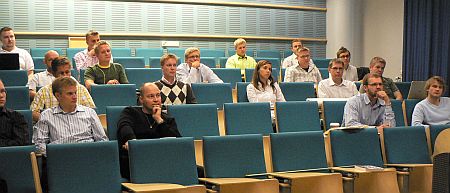Since I had already planned to be in Finland for educational purposes, I had offered Juha Hulkkonen (country manager for IBM Global Business Services) some of my time for purposes that might help the company. He asked me to coordinate with Jyrgi Koskinen, who has a more formal role in university relations for IBM in Finland. In addition to lecturing in the afternoon on research that I’m likely to publish over the next year or so, I was asked to give a morning lecture on SSME (Services Science, Management and Engineering) at a Friday morning coffee gathering at the IBM office.
I had seen Jim Spohrer give a version of this talk at the ISSS conference in Cancun last July, and then stepped up as a last-minute speaker on SSME at the IT Strategy Consulting conference in Toronto a few weeks ago. After more than a year of seeing similar presentations based on Jim’s slides, I wasn’t comfortable in presenting that content at IBM Finland. Firstly, Jim’s presentation is deep, and I only had 30 minutes with a casual audience. Secondly, Jim’s presentation is targeted more at universities and researchers, and my audience would likely be management consultants, technical services professionals, and some sales personnel. I decided to customize my own version of the presentation.
Although I definitely have academic research interests, I am a management consultant, and understand the perspective of “why should I care”? I had spoken with Jim before leaving on this trip, and he said that SSME isn’t something that will happen overnight, but it would be rewarding to see the educational system change over a 3-to-10 year horizon.… Read more (in a new tab)



